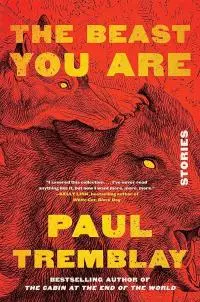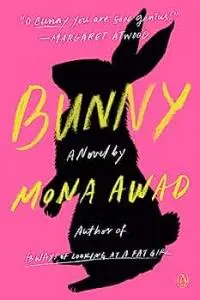Header images via pixabay 1, 2, 3
Celebrities are walking out of premieres, writers are striking all up and down the streets, and now real writers, book writers (take that, Hollywood!) are getting in on the anti-AI action.
Writers Paul Tremblay and Mona Awad have filed a lawsuit against OpenAI, makers of ChatGPT.
Let’s start with the basics.
The Suit
The core of authors’ complaint is that ChatGPT has ingested their books, along with hundreds of thousands of others, without consent or payment, and this unauthorized use of their work is a violation of copyright.
Tremblay and Awad say it’s evident that ChatGPT ingested their books because it can create, on request, very good, detailed summaries of their books.
Does ChatGPT Train on Copyrighted Books?
Let's say you wanted an AI to be able to write a novel. You'd go about it almost the same way you'd teach a person to write a novel: you'd have them ingest/read some how-to books, and you'd have them read a ton of novels.
The difference between a guy named Steve, who wants to learn how to write, and an AI named $t3ve, is you'd have $t3ve ingest hundreds of thousands of books. Oh, and it'd take $t3ve no time at all.
 OpenAI hasn’t been super forthcoming with the materials used to train ChatGPT, however, according to OpenAI, ChatGPT has been trained on a library of over 300,000 books, a number that suggests there are at least SOME copyrighted books in the mix.
OpenAI hasn’t been super forthcoming with the materials used to train ChatGPT, however, according to OpenAI, ChatGPT has been trained on a library of over 300,000 books, a number that suggests there are at least SOME copyrighted books in the mix.
They also seem to have used the Smashwords database to feed their beast. And although lots of books on Smashwords are free to read, their writers do still retain copyright (let's make this simple: you can read a Smashwords book cost free, but that doesn't mean you could take the text, slap it between covers, and sell it).
Last, the term “shadow libraries” is getting thrown around a lot. We can just go ahead and call them by their Christian name: “Torrents and shit.”
Usually I'm only a betting man when it comes to YouTube marble races and Grandparents Derbies, but if I were forced to bet on the question of whether copyrighted novels were used to train ChatGPT, I'd lay down an amount of money I can't afford to lose.
The real question here: Is AI ingesting a novel a violation of copyright?
The Best Argument for the Defense: Fair Use
According to Lilian Edwards, professor of law, innovation and society at Newcastle University, this will probably end up being a Fair Use case, which means it’ll be complicated.
Fair Use is a law in the United States that allows people to use portions, or even the entirety, of copyrighted materials, without pay or permission from copyright holders, under certain circumstances.
But there are A LOT of misconceptions around Fair Use.
Let’s do a Top 3:
It’s Fair Use If You’re Not Profiting: Nope. Profits are a factor in Fair Use, but you can do something without making a penny and still be in violation of copyright. You can also make a shitload of money and still be covered by Fair Use.
If You Only Use A Certain Amount Of Something, It’s Fair Use: Nope. You can use a tiny amount of something and still be in violation of copyright. You can also use almost the entirety of a material and be covered by Fair Use.
If You Do X, It’s Fair Use: Nope. Kind of buried the lead here, but Fair Use is SUPER complicated, and there’s really no document or procedure that guarantees Fair Use. It's case-by-case.
The Bigger Problem With Fair Use
It’s an American law, and it doesn’t apply to other countries.
With the internet being a global concern, even if OpenAI lost the suit, a company in another country could just jump right in and do the same thing, depending on their laws.
In fact, the government in the UK was very interested in creating copyright exceptions for the purposes of training AIs. This was roundly shouted down by the community of creatives, but when it comes to government versus artists…there’s reason to be concerned for the longterm outcomes.
Let's Get Suspicious
Here's where I get speculative.
I think this lawsuit is really about AI using authors' works to imitate authors and write books of their own, but that's not something the authors can win.
You know how Capone got busted for tax fraud instead of all the other shit?
This is that.
Let's Get Weird
There's a weirder aspect of this: we're kind of asking whether an AI is like a real person.
Remember Steve? And $t3ve?
One One Hand:
Steve probably read a bunch of books, including Paul Tremblay's, to learn how to write.
And when Steve sits down and cranks out his own novel, it'd be pretty tough to distinguish between a book that was "inspired by" Paul Tremblay and a book that was a copyright violation of Paul Tremblay's. Even if a book was a straight-up Paul Tremblay knockoff, it'd be a tough call.
And maybe what $t3ve is doing is pretty much the same. If $t3ve absorbs Paul Tremblay's books and creates new ones based on that style...is that different?
On The Other Hand:
Maybe what $t3ve is doing is closer to photocopying a Paul Tremblay novel than it is to learning from and imitating it.
Maybe the exactness of $t3ve's copying is a problem. Maybe $t3ve's speed and precision in imitation DO mean there's an ability to mimic a real person to a degree that wasn't possible before.
Maybe copyright laws are built with human abilities in mind. Maybe their application to a machine doesn't work.
$t3ve is still a machine. $t3ve isn't a person, as evidenced by the weird-ass spelling of his name.
Maybe treating $t3ve like a real person is what we really need to talk about.
If Authors Win
 I suspect that this would potentially create laws that more closely regulate the materials available for an AI to train on, which could be a very important step in regulating AI. AI is...kind of in a wild west period at the moment. And not the good wild west of being drunk and playing poker. The bad wild west. You think dying of syphilis is a rootin' tootin' adventure?
I suspect that this would potentially create laws that more closely regulate the materials available for an AI to train on, which could be a very important step in regulating AI. AI is...kind of in a wild west period at the moment. And not the good wild west of being drunk and playing poker. The bad wild west. You think dying of syphilis is a rootin' tootin' adventure?
It might also mean some regulation in terms of what AI is permitted to create. For example, a hyper-accurate, Awad-esque piece of writing might be something AIs are no longer permitted to create.
The author win would help future authors. Future human authors, anyway.
If OpenAI Wins
Ugh, this would not be good, methinks.
If OpenAI wins, it might open the door for AI to train on any copyrighted work and close the door to OpenAI being transparent about the materials AI trains on.
I've seen like 2/3 of the Terminator movies, and this usually ends with charred skeletons covering playgrounds all over the world.
I'm not a gigantic fan of tech companies regulating themselves. They suck at it.
My Personal Opinion
I’m very torn.
As a writer and a reader, fuck that AI shit.
As an everything else…
I read recently about AI being used to analyze photos of peoples’ skin to find skin cancer, and that it was learning fast, becoming pretty effective.
I can see the benefits of AI and Big Data coming together to diagnose people, potentially saving lives.
I read about AI chefs who were able to re-create dishes with a level of exactness that human chefs can’t match (although I anticipate a John-Henry-esque Robochef versus Gordon Ramsay thing not too far in the future).
I think cooking is boring. I don’t want to do it anymore. I would happily turn my cooking duties over to an AI.
And that’s how a lot of people feel about writing.
For some people, robo writers feel like…if someone asked me whether it was a good idea to create robots who clean out portable toilets, I’d say it absolutely was.
And there are people who would probably rather hose down a shitter than write a novel.
This whole AI thing is fucked up, and at the very least, I'm glad that a couple of authors are forcing the conversation about AI's future.
Not military, not Senators, not truckers, not lawyers, not ethicists. Writers.
Writers didn't cause this problem. But goddamn it, at least they're forcing everyone to talk about it.
Get Bunny: a novel by Mona Awad at Bookshop or Amazon
Get The Beast You Are: stories by Paul Tremblay at Bookshop or Amazon

About the author
Peter Derk lives, writes, and works in Colorado. Buy him a drink and he'll talk books all day. Buy him two and he'll be happy to tell you about the horrors of being responsible for a public restroom.







